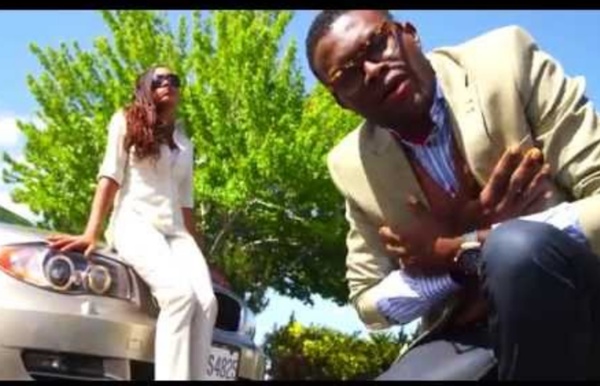



http://www.youtube.com/watch?v=i1Jp-V4jalI
Give It 2 U (Explicit) Sister Rosetta Tharpe Sister Rosetta Tharpe (March 20, 1915 – October 9, 1973) was an American singer, songwriter, guitarist and recording artist. A pioneer of mid-20th-century music, she attained popularity in the 1930s and 1940s with her gospel recordings, characterized by a unique mixture of spiritual lyrics and rhythmic accompaniment that was a precursor of rock and roll. She was the first great recording star of gospel music and among the first gospel musicians to appeal to rhythm-and-blues and rock-and-roll audiences, later being referred to as "the original soul sister" and "the godmother of rock and roll".[1][3][4][5][6] She influenced early rock-and-roll musicians, including Little Richard, Johnny Cash, Chuck Berry, Elvis Presley and Jerry Lee Lewis.[5][7][8]
Rosetta Tharpe Un article de Wikipédia, l'encyclopédie libre. Pour les articles homonymes, voir Rosetta. Sister Rosetta Tharpe est une chanteuse, musicienne, auteur-compositrice et guitariste de gospel et de blues Afro-américaine, née le à Cotton Plant (Arkansas) et décédée le à Philadelphie. Surnommée la Godmother of Rock ‘n’ Roll, ayant joué un rôle prépondérant dans la création du rock'n'roll, Tharpe est la première à mêler au gospel et au blues des rythmes rock. 10 queer rappers you should be listening to instead of Eminem In recent weeks, critics have rightly lambasted Eminem for the homophobic content of his latest album, “Marshall Mathers LP 2.” The rapper has been criticized in the past for continuing to using the word “faggot” in his music, and on the recently released “Rap God,” he also uses “gay-looking” as an insult. However, Slim Shady defended himself last week in an interview with Rolling Stone, in which he states that those words mean something different to him. “Gay” doesn’t denote “homosexual;” he claims it’s more like “calling someone a bitch or a punk or asshole.” Eminem will continue to be skewered for his stance, but he has shown he’s unlikely to listen to his critics. So instead of giving him more attention, here’s another solution: Stop listening to him.
Les Paul Un article de Wikipédia, l'encyclopédie libre. Biographie[modifier | modifier le code] Débuts[modifier | modifier le code] Avant que Lester William Polsfuss adopte « Les Paul » comme nom d'artiste, sa propre mère l'appelait simplement « Polsfuss ». Son intérêt pour la musique débute à l'âge de 8 ans, lorsqu’il reçoit un harmonica en cadeau. À neuf ans, sa mère lui fait prendre des cours de piano, mais selon sa biographe Mary Alice Shaughnessy[2], son professeur le renvoie à la maison après quelques leçons, avec un mot pour sa mère disant : « Chère Madame Polsfuss, votre garçon Lester n'apprendra jamais la musique, gardez votre argent.